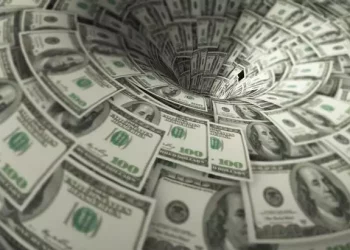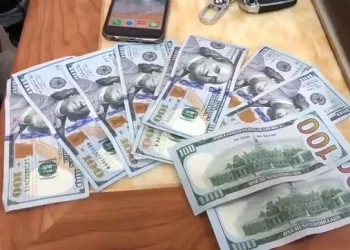In the dynamic world of foreign exchange, understanding the value of one currency in terms of another is essential for various financial activities, whether it’s international trade, travel, or investment. One common query that arises is, “What is 2 euros in pounds?” This seemingly simple question delves into the complex mechanisms of the foreign exchange market, exchange rate determination, and currency valuation. This article aims to provide a comprehensive exploration of this topic, covering everything from the basics of currency pairs to the factors influencing the exchange rate between the euro and the pound.
Understanding the Basics of Currency Pairs
The foreign exchange market operates on the principle of currency pairs. A currency pair represents the relative value of one currency against another. In the case of the euro and the pound, the currency pair is denoted as EUR/GBP. The first currency in the pair, the euro (EUR) in this instance, is known as the base currency, while the second currency, the pound (GBP), is the quote currency. When we want to know what 2 euros is in pounds, we are essentially looking at the exchange rate of the EUR/GBP pair.
The exchange rate indicates how much of the quote currency is needed to purchase one unit of the base currency. For example, if the EUR/GBP exchange rate is 0.85, it means that 0.85 pounds are required to buy 1 euro. To calculate the value of 2 euros in pounds, we simply multiply the amount of euros (2) by the exchange rate. So, 2 euros would be worth 2 x 0.85 = 1.7 pounds.Currency pairs are constantly fluctuating in value due to a multitude of economic, political, and social factors. These fluctuations create opportunities for profit in the forex market but also pose risks for those involved in international transactions.
The Euro and the Pound: A Brief Overview
The Euro (EUR)
The euro is the official currency of 20 out of the 27 member states of the European Union, collectively known as the eurozone. It was introduced in 1999 as an electronic currency for accounting and financial transactions, and physical euro coins and banknotes were issued in 2002. The euro is the second most traded currency in the world after the US dollar, and it plays a significant role in international trade and finance.
The European Central Bank (ECB) is responsible for monetary policy in the eurozone. The ECB’s main objectives are to maintain price stability and support economic growth. It achieves these goals through various measures, such as setting interest rates, conducting open market operations, and regulating the money supply.
The Pound Sterling (GBP)
The pound sterling, often referred to simply as the pound, is the official currency of the United Kingdom, as well as several British overseas territories. It is one of the oldest currencies in the world, with a history dating back over 1,200 years. The pound is the fourth most traded currency globally and is widely used in international finance and trade.
The Bank of England is the central bank of the United Kingdom and is responsible for formulating and implementing monetary policy. Similar to the ECB, the Bank of England aims to maintain price stability and promote economic growth. It uses tools such as interest rate adjustments and quantitative easing to manage the economy.
Factors Influencing the EUR/GBP Exchange Rate
The exchange rate between the euro and the pound is influenced by a wide range of factors, some of which are discussed below:
Economic Indicators
Gross Domestic Product (GDP): GDP is a measure of the total value of goods and services produced within a country or region. A higher GDP growth rate in the eurozone compared to the UK may lead to an appreciation of the euro relative to the pound, as it indicates a stronger economy and increased demand for the currency.
Inflation Rates: Inflation refers to the general increase in prices of goods and services over time. Central banks aim to keep inflation within a target range. If the inflation rate in the eurozone is lower than in the UK, the euro may strengthen against the pound, as it maintains its purchasing power better.
Interest Rates: Interest rates play a crucial role in currency valuation. Higher interest rates in a country attract foreign investment, as investors seek higher returns. If the ECB raises interest rates while the Bank of England keeps them low, it can lead to an influx of capital into the eurozone, increasing the demand for the euro and causing it to appreciate against the pound.
Political Stability and Geopolitical Events
Brexit: The United Kingdom’s decision to leave the European Union, known as Brexit, had a significant impact on the GBP. Uncertainty surrounding the negotiations and the future relationship between the UK and the EU led to increased volatility in the GBP. The outcome of Brexit negotiations, such as trade agreements and regulatory alignment, continues to influence the EUR/GBP exchange rate.
Political Developments in the Eurozone: Political events within the eurozone, such as elections, changes in government policies, or conflicts between member states, can also affect the euro’s value. For example, political instability in a major eurozone country may lead to a decrease in confidence in the euro, causing it to depreciate against the pound.
Market Sentiment and Speculation
Investor Confidence: Market participants’ confidence in the economies of the eurozone and the UK can influence the demand for their respective currencies. Positive economic news, such as strong employment data or business optimism, can boost investor confidence and lead to an increase in demand for the currency.
Speculation: Speculators play a significant role in the forex market. They buy and sell currencies based on their expectations of future price movements. If speculators believe that the euro will appreciate against the pound, they may buy euros and sell pounds, driving up the EUR/GBP exchange rate.
How to Calculate the Value of 2 Euros in Pounds
As mentioned earlier, to calculate the value of 2 euros in pounds, we need to know the current EUR/GBP exchange rate. There are several ways to obtain this information:
Online Currency Converters
There are numerous online currency converters available that provide real – time exchange rate information. These converters are user – friendly and allow you to simply enter the amount of euros (2 in this case) and select the EUR/GBP currency pair. The converter will then display the equivalent value in pounds based on the current exchange rate.
Banks and Financial Institutions
Banks and financial institutions also offer currency exchange services and can provide the current exchange rate. However, it’s important to note that banks may charge fees for currency conversion, which can affect the final amount you receive.
Forex Trading Platforms
For more advanced users, forex trading platforms offer real – time exchange rate data along with additional features such as charts, technical analysis tools, and the ability to trade currency pairs. These platforms are typically used by forex traders but can also be a useful source of exchange rate information for those interested in currency conversion.
Conclusion
Determining what 2 euros is in pounds involves understanding the intricacies of the foreign exchange market, currency pairs, and the various factors that influence exchange rates. The exchange rate between the euro and the pound is constantly changing due to economic, political, and market – related factors.To calculate the value of 2 euros in pounds, one needs to be aware of the current EUR/GBP exchange rate, which can be obtained through various sources such as online currency converters, banks, or forex trading platforms. Exchange rates have a far – reaching impact on international transactions, including trade, travel, and investment, affecting the cost, profitability, and decision – making processes of businesses and individuals.
Related topics



























